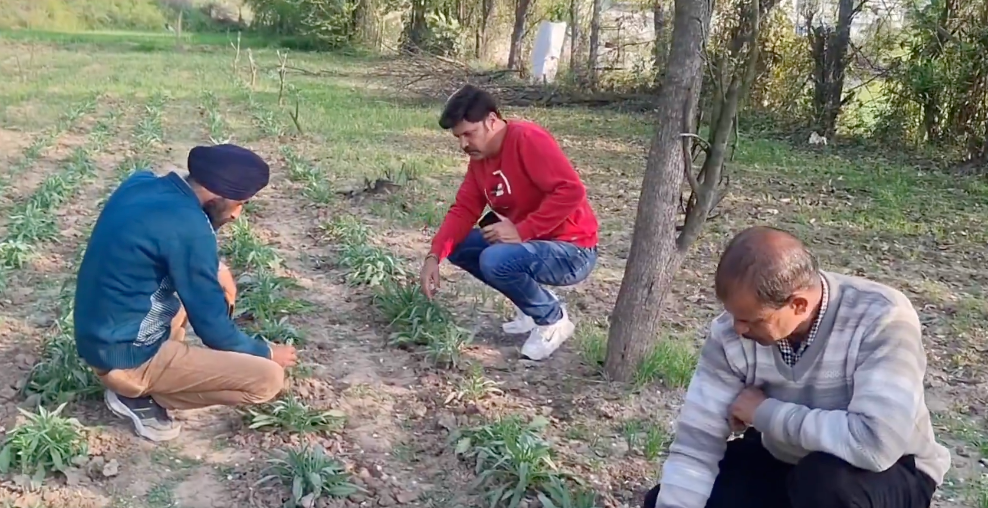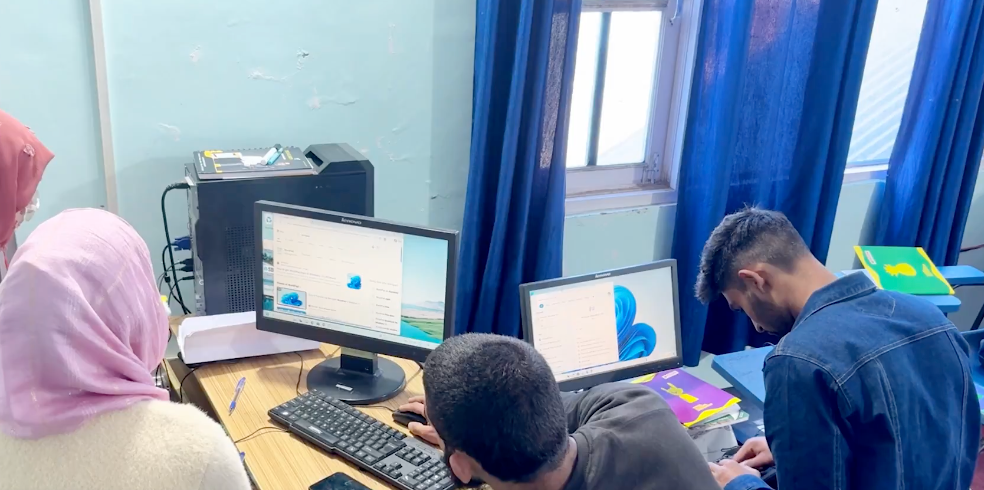Jammu, July 1, 2025 – Hundreds of devotees from across India converged at the Saraswati Dham registration centre near Jammu railway station on June 30, 2025, marking a strong start to the offline registration process for the Amarnath Yatra 2025. The significant turnout on the first day signals a powerful rejection of fear following the devastating April 22, 2025, terror attack in Pahalgam, where 26 people, predominantly tourists, were killed after religious profiling. The annual pilgrimage to the Amarnath Cave Shrine, set to commence on July 3 and conclude on August 9, 2025, is witnessing robust participation despite earlier concerns about declining registrations.
Surge in Registrations Amid Heightened SecurityThe rush at Saraswati Dham and other registration centres in Jammu reflects the undeterred spirit of pilgrims. “There is no fear due to the Pahalgam attack. Arrangements are good, and the administration is with us,” said a devotee at the registration centre. Another pilgrim emphasised, “I have faith in Amarnath. They (terrorists) can do whatever they want; we will not be affected.” This sentiment underscores the resolve of devotees to honour the victims of the April attack by choosing the Pahalgam route for the pilgrimage.
The Jammu and Kashmir administration has implemented unprecedented security measures in response to the Pahalgam attack. The Central Reserve Police Force (CRPF), Indian Army, Jammu and Kashmir Police, and the Jammu and Kashmir State Disaster Response Force (JKSDRF) have rolled out a multi-layered security plan along the Jammu-Srinagar National Highway (NH-44). This includes intensified patrolling, K-9 dog squads, and advanced surveillance, particularly in sensitive areas like Udhampur. Additionally, facial recognition systems (FRS) have been installed along the Pahalgam route to deter potential threats, with real-time alerts for blacklisted individuals. A joint mock landslide drill was conducted at Samroli, Toldi Nallah, to ensure emergency preparedness.

Impact of the Pahalgam Attack on RegistrationsThe April 22 terror attack in Pahalgam’s Baisaran meadow, described as one of the deadliest in the region, initially led to a significant drop in Amarnath Yatra registrations. Jammu and Kashmir Lieutenant Governor Manoj Sinha reported a 10% decline compared to the previous year, with only 85,000 of the 2.36 lakh pre-registered pilgrims reconfirming their participation after the attack. The Shri Amarnathji Shrine Board (SASB) initiated a reverification process for those registered before April 22 to address safety concerns. Despite the initial setback, recent reports indicate a surge in registrations, with approximately 3.5 lakh devotees registered as of June 30, 2025.
The attack, executed by three Pakistani LeT militants, also prompted the suspension of helicopter services for the 2025 Yatra due to security concerns and recent accidents in other states. Only 8% of pilgrims typically use these services, ensuring minimal disruption to the overall pilgrimage.
Pilgrimage Routes and Economic ImpactThe Amarnath Yatra, a 38-day spiritual journey to the Amarnath Cave Shrine located over 12,700 feet above sea level, is accessible via two routes: the 32-km Pahalgam route starting from Nunwan Base Camp in Anantnag and the shorter Baltal route. The first batch of pilgrims will depart from the Jammu base camp on July 2, 2025. Many devotees are opting for the Pahalgam route as a tribute to the victims of the April attack, symbolising resilience and solidarity.
Beyond its spiritual significance, the Yatra is a vital economic driver for Jammu and Kashmir. It supports local businesses, including hotels, restaurants, transportation providers, and vendors, while encouraging pilgrims to explore scenic destinations like Patnitop and Pahalgam, further boosting tourism. The administration’s efforts to restore traveler confidence are expected to aid the region’s economic recovery post-attack.
Investigation and AccountabilityThe National Investigation Agency (NIA) has made significant progress in the Pahalgam attack case, arresting two locals, Parvaiz Ahmad Jothar and Bashir Ahmad Jothar, for allegedly harbouring the LeT terrorists. The accused provided food, shelter, and logistical support to the militants, identified as Pakistani nationals. A special NIA court granted a 10-day remand on June 27, 2025, following an initial five-day custody, to further probe the attack that killed 26 and injured 16. Despite claims by Jammu and Kashmir Chief Minister Omar Abdullah denying local involvement, the arrests highlight ongoing efforts to dismantle terror networks in the region.
| Aspect | Details |
|---|---|
| Yatra Duration | July 3 – August 9, 2025 (38 days) |
| Routes | Pahalgam (32 km, Nunwan Base Camp) and Baltal |
| Registration Status | ~3.5 lakh registered; 10% drop post-Pahalgam attack; 85,000 reconfirmed |
| Security Measures | Multi-layered CRPF plan, facial recognition systems, K-9 squads, NH-44 patrols |
| Pahalgam Attack | April 22, 2025; 26 killed, 16 injured; LeT militants; 2 locals arrested |
| Helicopter Services | Suspended due to security and safety concerns |
| Economic Impact | Boosts hotels, transport, vendors; aids tourism recovery |
| First Batch Departure | July 2, 2025, from Jammu base camp |
Conclusion
The robust turnout at the Saraswati Dham registration centre and the administration’s comprehensive security arrangements reflect a collective determination to ensure the Amarnath Yatra 2025 proceeds smoothly. By choosing the Pahalgam route and participating in large numbers, pilgrims are sending a resolute message against terrorism, honouring the victims of the April 22 attack, and contributing to the region’s spiritual and economic revival. As the Yatra begins on July 3, the administration remains vigilant, with enhanced measures to safeguard devotees and restore confidence in Jammu and Kashmir’s tourism sector.










